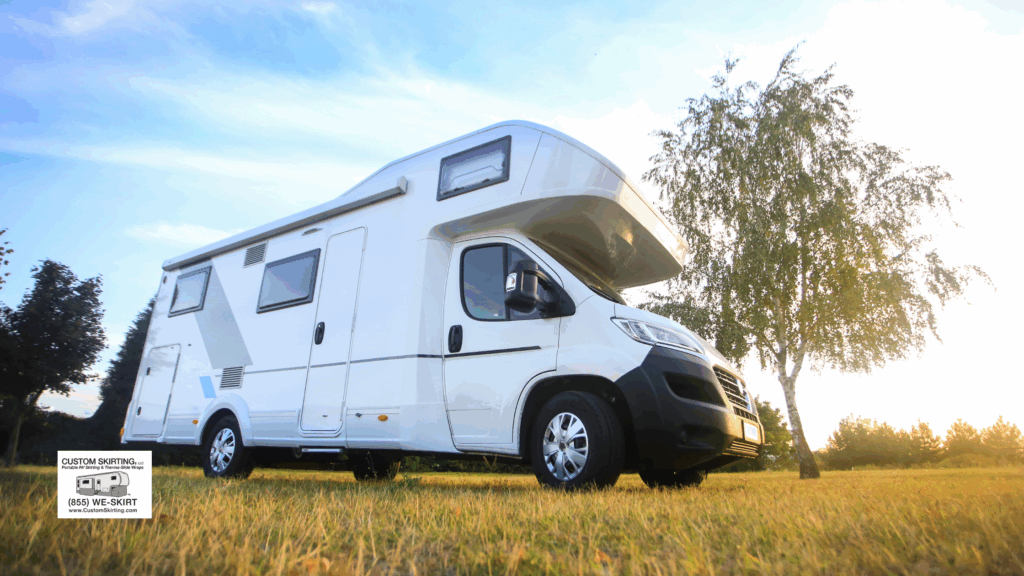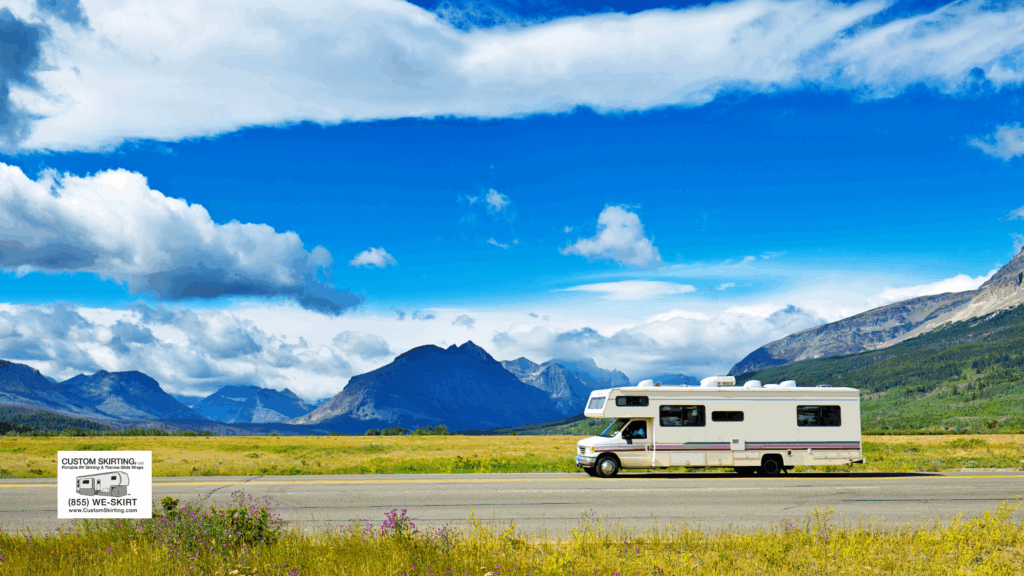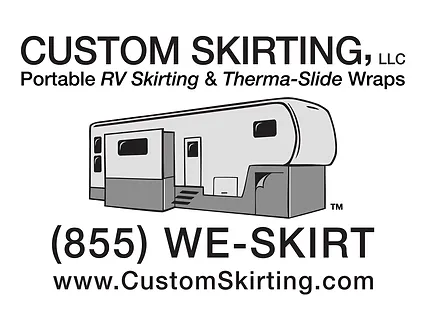
Best RV Water Softener: Complete Buying Guide for Campers
Table of contents
- Understanding Hard Water and Its Impact on RVs
- How RV Water Softeners Work
- Benefits of Using a Water Softener in Your RV
- Top 7 RV Water Softeners Reviewed
- How to Choose the Right RV Water Softener
- Installation and Maintenance Tips
- Alternatives and Complementary Systems
- Upgrade Your RV Water System — And Protect It Year-Round
- Related Articles
Water quality is a crucial yet often overlooked component of a successful RV lifestyle. Whether you’re a weekend warrior or a full-time traveler, the quality of your water can significantly affect both your comfort and the health of your RV. Hard water, commonly found at campgrounds across the United States, is rich in minerals like calcium and magnesium that can wreak havoc on RV plumbing systems. That’s where the best RV water softener comes in. Investing in an RV water softener system can protect your equipment, extend appliance life, and improve your overall camping experience. In this comprehensive guide, we’ll explore what water softeners for RVs are, how they function, and which models rank as the best in the market. We’ll also highlight the potential problems hard water can cause, such as scale buildup, inefficient water heaters, and soap scum issues. Whether you’re a seasoned traveler or a newbie to RV living, this article will help you find the ideal water softener for RV use.
Understanding Hard Water and Its Impact on RVs
What Is Hard Water?
Hard water contains high levels of dissolved minerals, primarily calcium and magnesium. These minerals can accumulate in your plumbing and appliances, leading to inefficiencies and costly repairs. Water hardness is measured in grains per gallon (GPG) or parts per million (PPM):
- Soft: 0-3.5 GPG
- Moderately hard: 3.6-7 GPG
- Hard: 7.1-10.5 GPG
- Very hard: 10.6+ GPG
Most U.S. water supplies fall into the “hard” or “very hard” categories, making a rv water softener a necessity for many campers.
Signs of Hard Water in Your RV
If you’re experiencing any of the following, your RV might be suffering from hard water:
- White or chalky residue on faucets and showerheads
- Spotting on dishes and glassware
- Soap and shampoo that won’t lather properly
- Clogged water heater or reduced water pressure
- Frequent plumbing repairs
These issues are even more problematic in RVs due to their compact plumbing systems. A water softener for RV use can address these signs effectively.
How Hard Water Damages RV Systems
Hard water leads to scale buildup inside pipes, faucets, and water heaters. This mineral accumulation restricts water flow, damages heating elements, and reduces appliance efficiency. Over time, this results in higher maintenance costs and shorter appliance lifespans. Installing a reliable RV water softener system helps prevent these expensive problems.
How RV Water Softeners Work

The Ion Exchange Process
The most common RV water softener system uses ion exchange to remove hard minerals. Resin beads inside the softener are charged with sodium ions. When hard water passes through, the resin traps calcium and magnesium ions and releases sodium in their place. This process transforms hard water into soft, safe water for your RV.
Regeneration and Maintenance
Over time, the resin beads become saturated with hard minerals and must be recharged—a process called regeneration. This is done using regular table salt. Depending on usage and water hardness, regeneration is typically needed every few weeks. Regular maintenance involves cleaning the tank and refilling the salt. Most water softeners for RVs are designed for easy maintenance and longevity, with resin beads lasting 5–10 years.
Benefits of Using a Water Softener in Your RV
Protection for Plumbing and Appliances
Using the best RV water softener protects your RV’s plumbing system from scale buildup, clogs, and premature failure. Appliances like water heaters, dishwashers, and even coffee makers will last longer and operate more efficiently with soft water.
Improved Water Usage Efficiency
Soft water improves soap lather and rinse efficiency, reducing water consumption by up to 40%—a key benefit for RVers with limited freshwater storage. You’ll also use less detergent, saving money and reducing environmental impact.
Enhanced Comfort and Convenience
Soft water feels better on your skin and hair and tastes better, too. Your dishes will come out cleaner, your shower walls won’t be covered in soap scum, and your laundry will be softer. These quality-of-life benefits make a rv water softener system a worthy addition to any camper setup.
Top 7 RV Water Softeners Reviewed
On The Go Portable Double Standard Water Softener
This high-capacity model delivers up to 16,000 grains, enough for 40 days of use between regenerations. It weighs around 32 pounds and regenerates in under 30 minutes with common table salt. It’s easy to connect and ideal for full-time RVers who use a lot of water. One of the best RV water softener options for families or long trips.
On The Go Portable Single Standard Water Softener
Offering half the capacity of its double-sized counterpart (8,000 grains), this compact unit is perfect for solo travelers or couples. It’s lightweight and easy to store, making it a great water softener for RV setups with limited space.
Camco TastePure Portable Water Softener
This Camco unit features a 10,000-grain capacity and a built-in filter for added water purification. Regeneration is quick and simple, and its compact design makes it highly portable. A good mid-range rv water softener with bonus filtration features.
Mobile-Soft-Water Portable Water Softener
A popular choice for its affordability and performance, this model features a 16,000-grain capacity and dual-hose ports for convenience. The lightweight design and straightforward regeneration process make it ideal for occasional RVers.
ABCwaters Portable Water Softener
This durable unit boasts premium construction, with a 16,000-grain capacity and quick-connect fittings. It’s slightly bulkier but very reliable, with excellent user reviews for long-term performance. Perfect for RVers who want a robust rv water softener system.
Watts RV PRO-1000 Water Softener
Known for durability and precision, the Watts PRO-1000 offers a 10,000-grain capacity and customizable flow direction. It includes a full cradle base for stability and a test strip to monitor water hardness. A solid choice for any RV owner.
SoftPro Portable Water Softener
This user-friendly unit combines a 16,000-grain capacity with a sleek, compact design. It’s easy to install and maintain, making it one of the best RV water softener options for first-time users. Comes with a backwash feature for improved efficiency.
How to Choose the Right RV Water Softener

Capacity Considerations
Determine your ideal capacity based on the number of people in your RV and the duration of your trips. A 16,000-grain model works well for full-timers or families, while 8,000 to 10,000 grains might suit couples or weekend travelers.
Space and Weight Limitations
Always measure your storage compartment before purchasing. Choose a water softener for RV use that fits comfortably and doesn’t exceed your RV’s weight limit.
Ease of Installation and Use
Most rv water softener systems are plug-and-play, requiring only basic hose connections. Look for models with user-friendly regeneration features and minimal setup time.
Budget and Value
Expect to pay between $200–$350 for a high-quality rv water softener. Consider the long-term savings on repairs and maintenance when evaluating value. Spending a bit more upfront can mean fewer headaches later.
Installation and Maintenance Tips
Step-by-Step Installation Guide
- Locate your RV’s freshwater inlet.
- Attach the water softener between the hose and the inlet.
- Secure all connections tightly.
- Open the water source slowly to fill the softener.
No special tools are typically required, and setup takes under 15 minutes.
Regeneration Process Explained
- Disconnect the softener.
- Drain existing water.
- Add 1-2 boxes of table salt into the softener.
- Slowly run water through until it flushes clear (usually 20-30 minutes).
- Reconnect and resume use.
Winterization and Storage
To prevent freezing damage:
- Drain all water from the softener.
- Store it indoors or in a heated compartment.
- Clean and dry before long-term storage.
Alternatives and Complementary Systems
Water Filters vs. Water Softeners
Water filters remove particles, chlorine, and contaminants. Softening removes hardness minerals. Both systems can work together for cleaner, safer water.
Reverse Osmosis Systems
RO systems provide superior filtration but produce wastewater and require more space. They are best used in tandem with a rv water softener for those needing ultra-pure water.
Considerations for Sodium-Restricted Diets
If you’re concerned about sodium, consider potassium chloride as an alternative to salt in your softener. Or, install a bypass for drinking water lines to avoid softened water in your beverages.
Upgrade Your RV Water System — And Protect It Year-Round
Investing in the best RV water softener is a smart step toward cleaner, safer water—but don’t stop there. Protect your entire plumbing system from freezing temps and harsh weather with Custom RV Skirting, the nation’s #1 solution. Our expert team will blueprint and tailor your skirting on-site for a perfect, gap-free fit using our exclusive “No-Snap, No-Gap” channel system. Trusted across the coldest regions of the U.S. and Canada, it’s durable, easy to install, and ready to move when you do.
Shield your RV investment from the elements—Get Custom Skirting today and travel with confidence!
